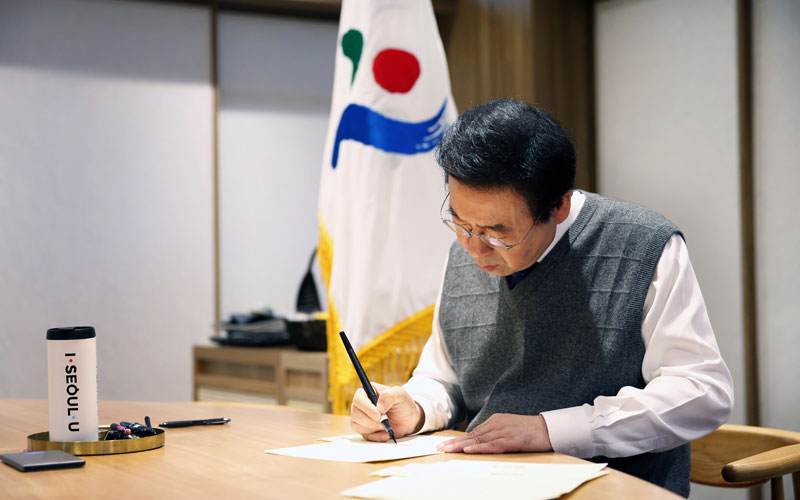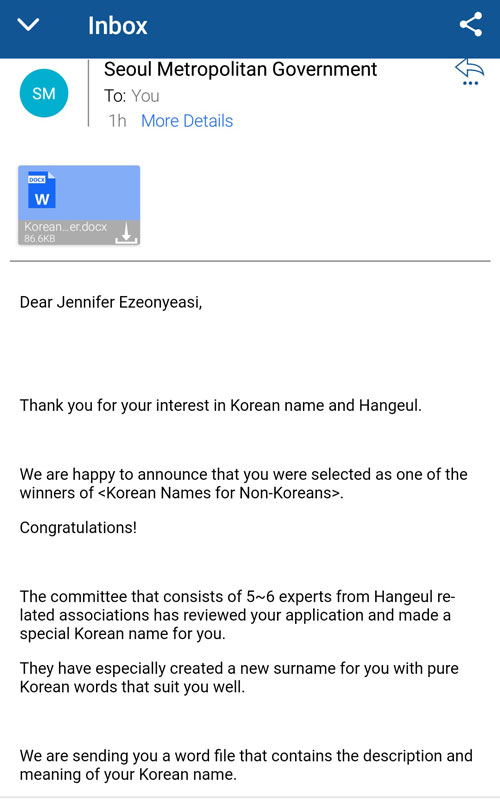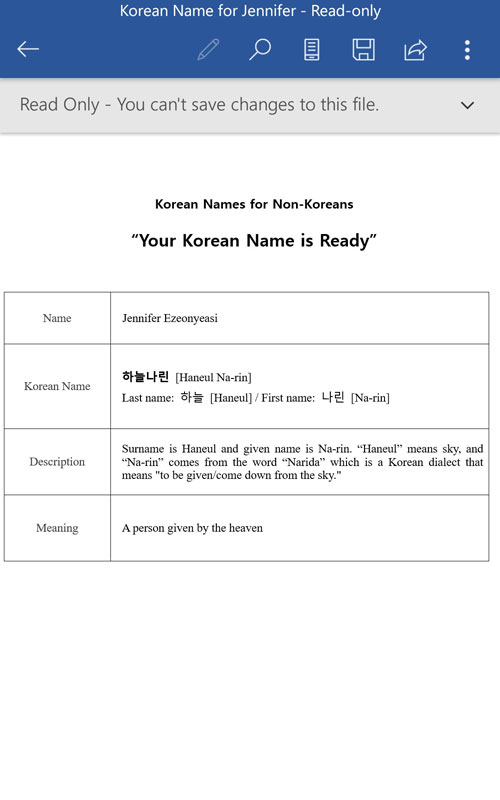- 한국어
- English
- 日本語
- 中文
- العربية
- Español
- Français
- Deutsch
- Pусский
- Tiếng Việt
- Indonesian
By Honorary Reporter Jennifer Ezeonyeasi from Nigeria

Seoul presents foreigners with Korean names. (Seoul Metropolitan Government)
A name or identity is a powerful thing. When you call people by their names, a good feeling and a sense of belonging come with it. This is why someone is most likely to read email with his or her first name on it because it makes that person feel like the sender is talking to him or her personally, though a thousand or more people probably received the same email.
Names are also a way to identify people from a variety of cultures and tribes or even shared interests between cultures. This is why people are ready to adopt names from a culture that they did not originate from simply because they feel connected to that culture in one form or another. A name gives a genuine sense of belonging to a particular people or culture. The meaning of one's name is even believed to determine the outcome of his or her life.
Given the power of a name, Seoul Metropolitan Government announced on Nov. 28 last year a list of 10 winners out of 248 people from 52 countries who applied to participate in the program "Korean Names for Non-Koreans." This pilot project sought to inform the world of the Korean alphabet's beauty and excellence and celebrate Hangeul Proclamation Day, a national holiday in Korea that falls on Oct. 9.
The Korean names bestowed were jointly created by the city and Hangeul-related organizations using only Korean characters and reflecting the meanings and stories the applicants wanted to incorporate into their names. Instead of offering the ten existing surnames, new ones were coined to consider the element of Korean culture conveyed by the names and to spread the beauty of the Korean language.
The city government extended the deadline of the third round of applications to Dec. 7 given the high interest that the initiative received from non-Koreans. The Korean names on Christmas Eve were presented to the winners as a gift. I participated in this contest as I'd always wanted a Korean name (and gave myself one earlier: Kim Su-bin). When I saw the opportunity to receive a Korean name directly from the Seoul municipal government, I jumped at this chance and was excited because this felt more real and legal.
In the application, the questions included those about our real names, their meanings, why we wanted a Korean name, how we came to love Korean culture and how receiving a Korean name from the Seoul city government would boost our interest in Korean culture. I'm not exactly sure how I answered the questions because I was just so excited to apply. I was also a little scared over not being selected because just 10 foreigners would receive Korean names.

(Jennifer Ezeonyeasi)
I woke up on Christmas Eve to the good news of being one of the lucky ten to receive a Korean name. My boundless joy had me literally screaming from the bathroom, where I was perusing my email. I've always loved to participate in activities connecting me to Korean culture and how the city government decided to capitalize on the psychology and importance of providing Korean names to promote Korean culture. My name topped the list in my category, and even if it means nothing to others, it meant a lot to me.
I appreciate and applaud the Korean government's diverse activities to promote Korean culture and get foreigners to connect with it. The following is a breakdown of the name I was given:

(Jennifer Ezeonyeasi)
Given name: Na-rin
Meaning: A person given by heaven
My new Korean name is Haneul Na-rin, and I absolutely love the meaning of this name because it's exactly how I feel and want to feel like to the world. I hope to participate in more activities connecting me to the Korean people and culture.
chaey0726@korea.kr
*This article is written by a Korea.net Honorary Reporter. Our group of Honorary Reporters are from all around the world, and they share with Korea.net their love and passion for all things Korean.